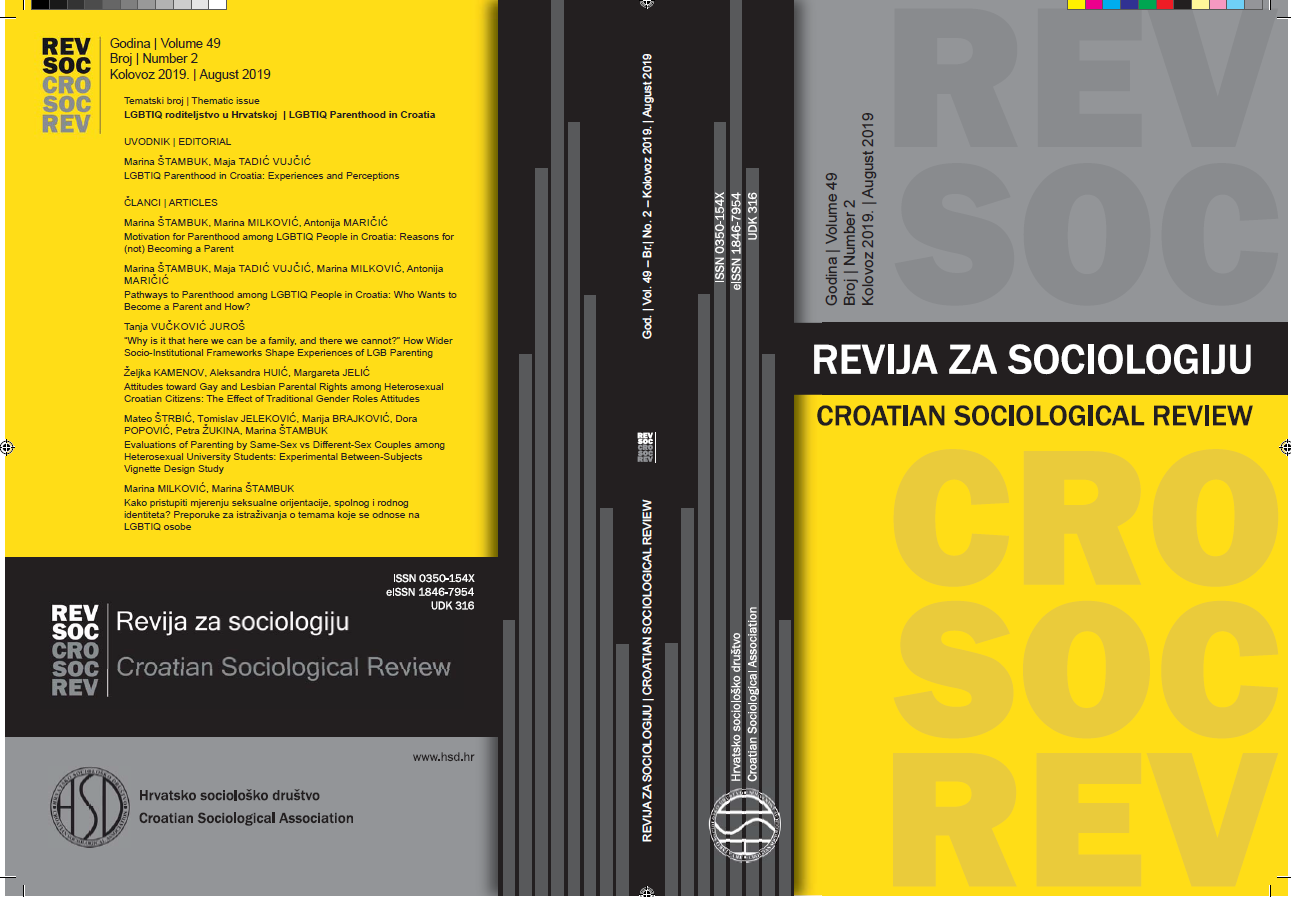Attitudes towards Gay and Lesbian Parental Rights among Heterosexual Croatian Citizens: The Effect of Traditional Gender-Role Attitudes
Attitudes towards Gay and Lesbian Parental Rights among Heterosexual Croatian Citizens: The Effect of Traditional Gender-Role Attitudes
Author(s): Željka Kamenov, Aleksandra Huić, Margareta JelićSubject(s): Gender Studies, Family and social welfare, Demography and human biology
Published by: Hrvatsko sociološko društvo
Keywords: attitudes towards gay and lesbian parental rights; gender identity; gender-role attitudes; Croatian citizens; socio-demographic characteristics;
Summary/Abstract: Non-normative sexual orientations question the binary and hierarchically organised image of men–women relations. The main goal of this research was to explore the role of gender identity and gender-roles attitudes in predicting attitudes towards same-sex parenting. An additional goal was to assess whether socio-demographic variables such as age, education, religiosity and political preferences – which proved to be relevant in predicting homonegativity – would also predict attitudes towards same-sex parenting. Finally, the authors explored whether gender identity and gender-role attitudes bore an effect on attitudes towards same-sex parenting after controlling for the socio-demographic variables. An online survey with 992 heterosexual participants of both genders (70% women) aged 18 to 79 years was conducted in Croatia in 2014. Participants expressed less support for gay than for lesbian parenting, with female participants expressing more positive attitudes towards both gay and lesbian parenting than male ones. Expectedly, same-sex parenting was more supported by less religious and politically more left-oriented participants, as well as those who cohabitate compared to married participants. Age and education, but also gender identity, did not prove predictive. However, the expectations about the role of traditional gender norms were confirmed. Participants with more traditional gender-role attitudes, as well as those who are parents themselves, expressed more negative attitudes towards same-sex parenting.
Journal: Revija za sociologiju
- Issue Year: 49/2019
- Issue No: 2
- Page Range: 231-251
- Page Count: 21
- Language: English

